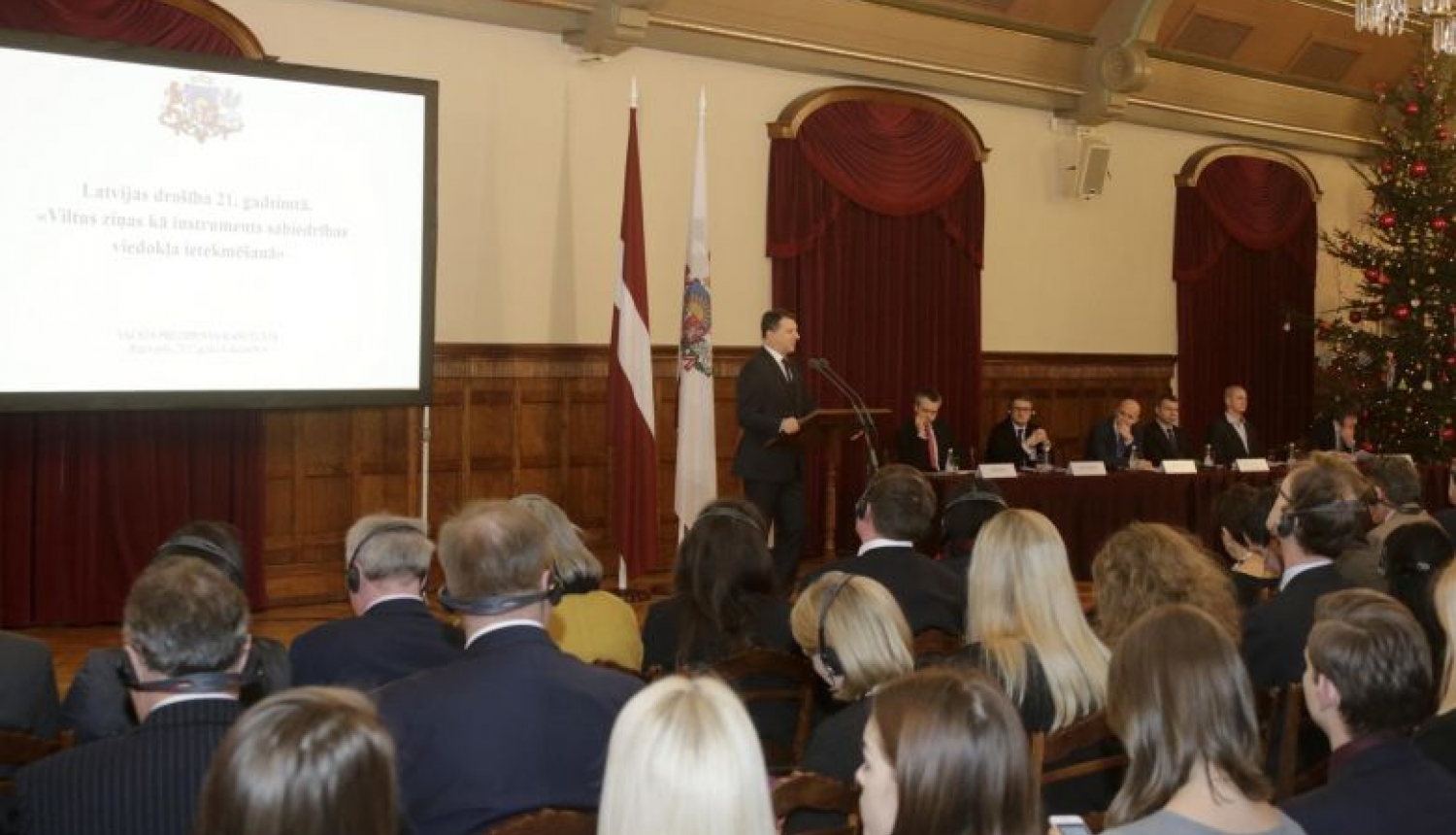President of Latvia Raimonds Vējonis acknowledged in his introductory speech that much should be done to ensure that resilience of the society and politicians against fake news remained at a high level. “Fake news is one of the strongest modern weapons that is constantly being used in the struggle for the hearts and minds of the people of Latvia,” stated the President of Latvia. He pointed out that cultivating critical thinking in the society and finding a way to improve the quality of the information environment was required.
As the special guest, Researcher at the Institute of International Relations Prague, the coordinator of the Centre for European Security Mark Galeotti emphasised that the risk of fake news was caused by the fact that many people considered themselves smart enough to think that fake news would not influence them, but it is not true. The fact that on social media people find themselves mainly in a familiar information environment that significantly excludes alternative views is of great importance. Dr Galeotti pointed out that dividing the public, distracting and demoralising the population are the three main types of spreading fake news used by Russia in an attempt to influence the public in the West.
Mark Galeotti stressed the need to educate the public to be able to distinguish more critically when there are lies because disinformation is spread not only by Russia but also by the radical grouping of the Islamic State and various companies that want to sell something.
Director of NATO Strategic Communication Centre of Excellence Jānis Sārts pointed out that personal data that had been initially collected for commercial purposes was increasingly being used to change people’s social and political behaviour. Jānis Sārts stressed that thinking was the best tool to fight the impact of the fake news. Deputy Head of the Information Technologies Security Incident Institution CERT.LV Varis Teivāns agreed that technology would never replace raising public awareness and high-quality education.
Researcher at the Institute of Philosophy and Sociology of the University of Latvia, an expert at the Center for European Policy Analysis (CEPA) Mārtiņš Kaprāns and Editor at newspaper Latvijas Avīze, author of the project “Atmaskots” (Unmasked) Māris Antonevičs analysed the most commonly spread topics of fake news and their impact in the media environment in Latvia. M. Kaprāns admitted that the most radical myths became less efficient, however, there was the message of a failed state maintained, and myths about NATO and the economy were intensified.
The discussion took place within the framework of the discussion cycle “The Security of Latvia in the 21st Century” initiated by President of Latvia Raimonds Vējonis.




